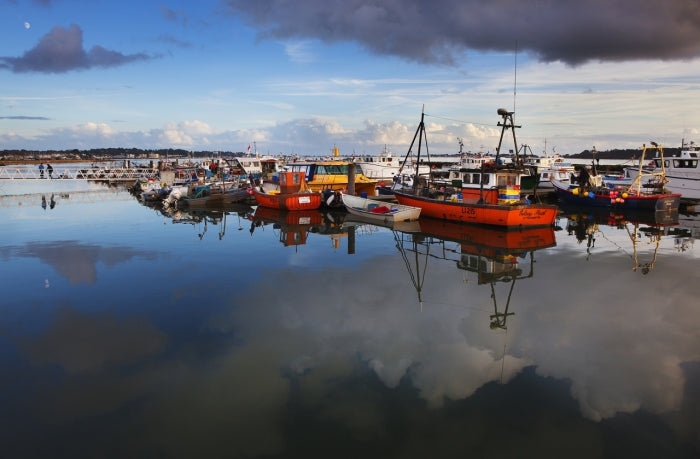
Poole Harbour's Environmental Crisis: The Oil Spill Incident
Ashton RouthierShare
Overview
Collaborative measures are crucial to safeguard natural resources for future generations while balancing the demands of energy production and economic development. A collective effort from companies, regulatory bodies, and local authorities is essential to prioritize environmental protection and sustainable practices. There is an imperative need for stricter safety and environmental regulations to prevent future spills, focusing on better pipeline monitoring and robust maintenance practices. The ongoing cleanup efforts underscore the necessity of quick action and the challenges involved in mitigating such disasters.

On March 26, 2023, Poole Harbour witnessed a significant environmental disaster when an oil spill occurred, originating from the Wytch Farm oil field operated by Perenco. The Poole Harbour Commissioners reported that approximately 200 barrels of "reservoir fluid" leaked into the harbor from one of the oil field's pipelines. The Environment Agency has classified this incident as a "major incident," highlighting the severe impact on the local ecosystem and economy.
The Incident Unfolds
The oil spill was first detected in the early hours of March 26, 2023. Initial reports indicated that a significant volume of "reservoir fluid," a mixture of crude oil and other substances, had escaped into Poole Harbour. The leak originated from a pipeline connected to the Wytch Farm oil field, one of the largest onshore oil fields in Western Europe. Immediate containment and cleanup efforts were initiated, but the scale of the spill raised concerns among environmentalists, local authorities, and residents.
Environmental Impact
The spill's impact on Poole Harbour's delicate ecosystem has been profound. Poole Harbour, a designated Site of Special Scientific Interest (SSSI), is home to various bird species, marine life, and unique habitats. The introduction of oil into this environment threatens the health and survival of these species. Birds, in particular, are at risk as oil can coat their feathers, impairing their ability to fly and maintain body temperature. Additionally, marine life such as fish and shellfish could suffer from the toxic effects of the spill, potentially disrupting the local fishing industry.
Response and Cleanup Efforts
In response to the spill, the Poole Harbour Commissioners and Perenco mobilized their emergency response teams to contain the oil and minimize environmental damage. Booms and skimmers were deployed to prevent the spread of oil, and specialized vessels began the arduous task of recovering the spilled fluid. Despite these efforts, the cleanup operation is expected to take several weeks, if not months, to fully address the contamination. The Environment Agency and local authorities are closely monitoring the situation, providing support and guidance to the response teams.
Long-term Consequences and Preventative Measures
The long-term consequences of the oil spill in Poole Harbour are still unfolding. Beyond the immediate environmental damage, there are concerns about the economic impact on local communities dependent on tourism and fishing. As investigations into the cause of the pipeline failure continue, there will likely be calls for stricter regulations and oversight of onshore oil operations to prevent future incidents. Enhancing pipeline monitoring systems, improving emergency response protocols, and investing in robust infrastructure maintenance will be critical in safeguarding against similar disasters in the future.
source: https://en.wikipedia.org/wiki/Poole_Harbour#History